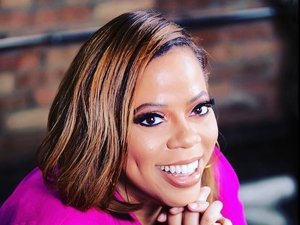Black and Latino founders received only 1% and 1.5% of total U.S. venture capital funding, respectively, in 2022. But venture firms that look to address that disparity directly could face trouble as a lawsuit filed in Georgia brings the battle against race-based policies to the venture capital world.
The lawsuit alleges that Fearless Fund, a Georgia-based fund that aims to invest in startups led by women of color, violates federal civil rights law.
Fearless Fund — which says it is "built by women of color for women of color" — provides grants to Black women in an effort to bridge the gap in venture capital. The firm has deployed more than $26.5 million in investment capital and awarded a total of 346 grants worth $3 million.
It is hardly the only firm or organization looking to bridge the racial gap in the VC world.
Data backs that Black and Latino founders struggle to raise funds
Local firms like LongJump, Chingona Ventures, Fifth Star Funds and others have put millions in the hands of underrepresented founders in recent years and continue to prioritize diversity despite the down market.
For example, Capitalize VC, led by founder Tessa Flippin, is raising $10 million for its first fund to invest in Black and Latino founders developing e-commerce infrastructure technology and consumer brands.
Flippin, a former investor at Chicago's TechNexus Venture Collaborative and the founder of fintech startup La Plataforma, admits that fundraising in 2023 has encountered one obstacle after the next, of which the Fearless Fund lawsuit is just the latest.
She said the fund is over 50% raised and she expects it to close sometime this year. In the meantime, the fund has invested in seven companies to date, three of which are Chicago-based.
Flippin said the lawsuit was somewhat "ironic" since the reason Fearless Fund and others like it exist is to get funding to founders who don't have options elsewhere in the industry.
"If diverse founders didn't only receive 1% of VC dollars that are deployed annually, there wouldn't be the need for our funds," she told Chicago Inno.
Women-founded teams received 1.9% of VC funds, and Black and Latino women founders got only 0.1%, in 2022, according to data from McKinsey & Co.
It's a problem that Flippin has experienced firsthand.
Flippin founded fintech startup La Plataforma after graduating from Columbia Business School and found the fundraising experience to be extremely difficult.
"I was a different founder than I think a lot of the investors had seen before, and there wasn't a lot of commonality between the people we were raising from and myself," she said. "That made me want to transition into VC because I wanted to learn more about what VCs look for in early-stage founders. I wanted to start Capitalize to pursue the thesis of investing in diverse founders, given my own experience fundraising, my own experience investing; seeing that lack of diversity; and then the opportunity that I saw to create a change."
Capitalize VC's strategy requires it to invest in startups with at least one Black or Latino founder on the founding team.
Fippin will be watching to see where the Fearless Fund lawsuit goes from here, but at the end of the day is committed to Capitalize's mission.
"I think there's a lot more work to be done," she added.
Backlash against prioritizing diversity
Joey Mak, CEO of Chicago:Blend, said the Fearless Fund lawsuit was just the latest in a growing backlash against diversity, equity and inclusion efforts.
Founded in 2018, Chicago:Blend set out to examine the diversity gap in Chicago’s tech community. Some of its initiatives have included outlining the gender and racial demographics of local startups’ leadership teams and collecting diversity data across all of Chicago's venture firms.
Mak told Chicago Inno that after George Floyd's murder by police and the widespread protests that followed, "there was an outpouring of support for organizations and initiatives that focus on gender parity and racial justice. What we are experiencing now in our opinion is the cultural backlash to that, from overturning affirmative action in college admissions to this lawsuit and now towards potentially targeting law firms that prioritize diversity."
The Fearless Fund became the target of conservative legal activist Edward Blum, who was also behind the Supreme Court case that struck down affirmative action in college admissions in June.
More than 70 VC firms have signed an open letter denouncing the lawsuit against Fearless Fund that Flippin helped organize. Among the signatories are Chicago VCs Brian Luerssen of LongJump Ventures and Shayna Harris with Supply Change Capital.
"It is deeply troubling that this group has chosen to build their case for discrimination on the backs of Black Women who are striving to level the playing field to access capital through entrepreneurship and business ownership," the letter said.






